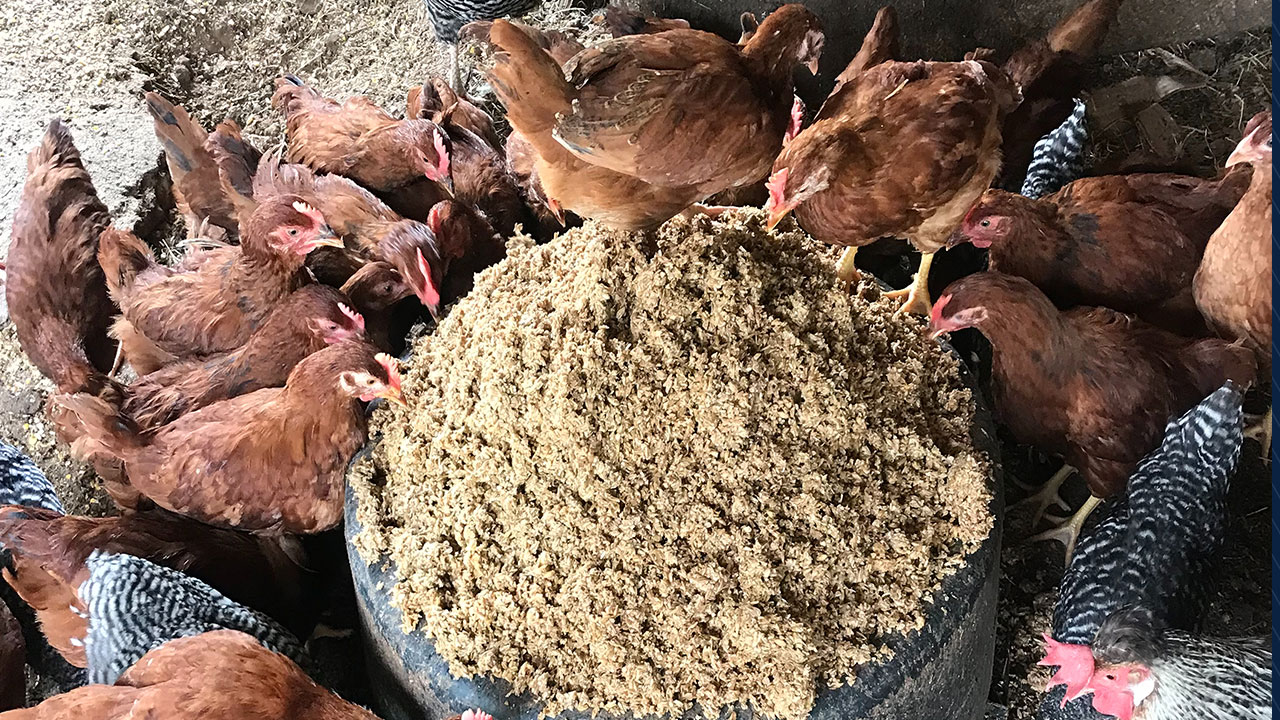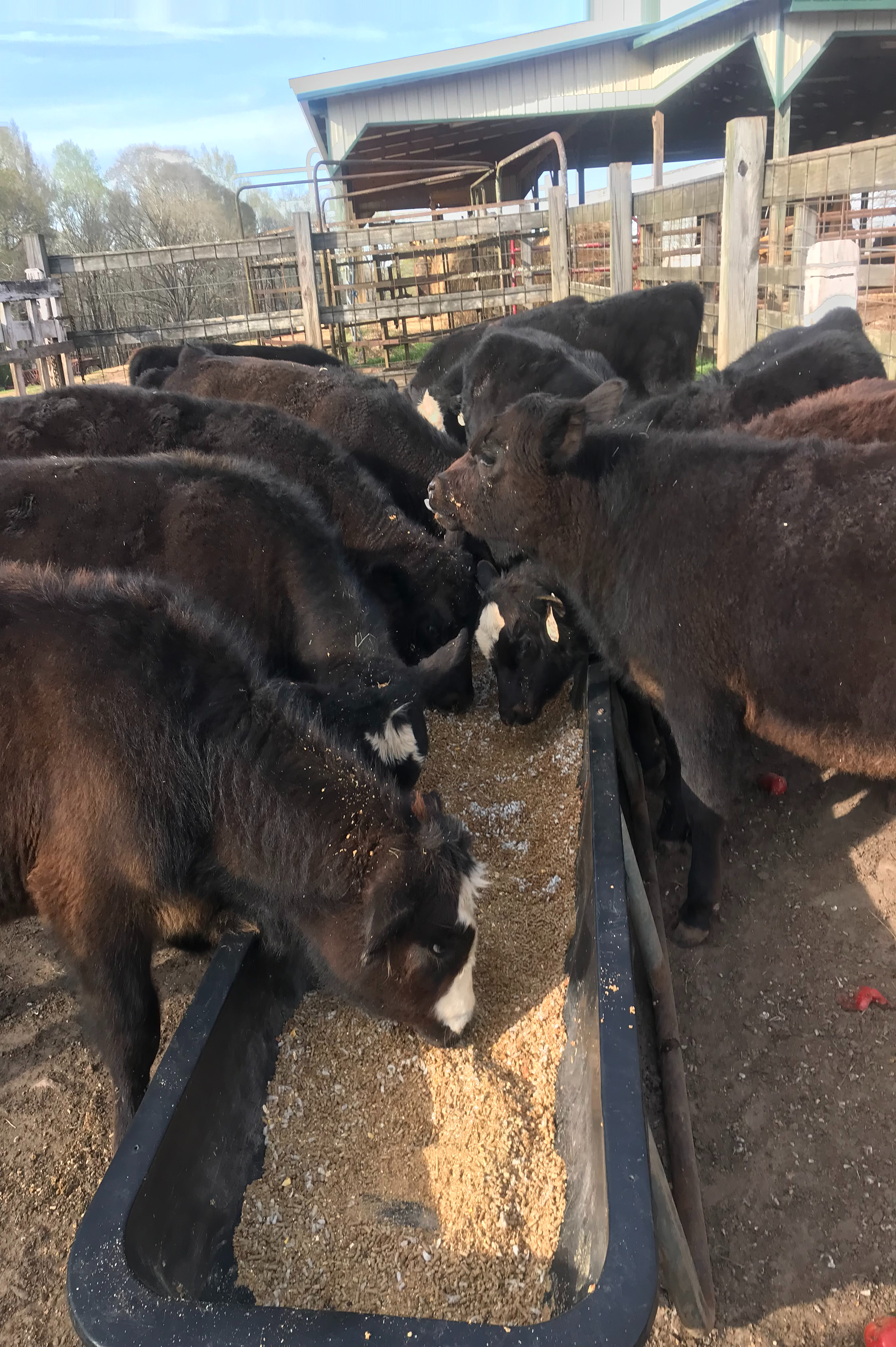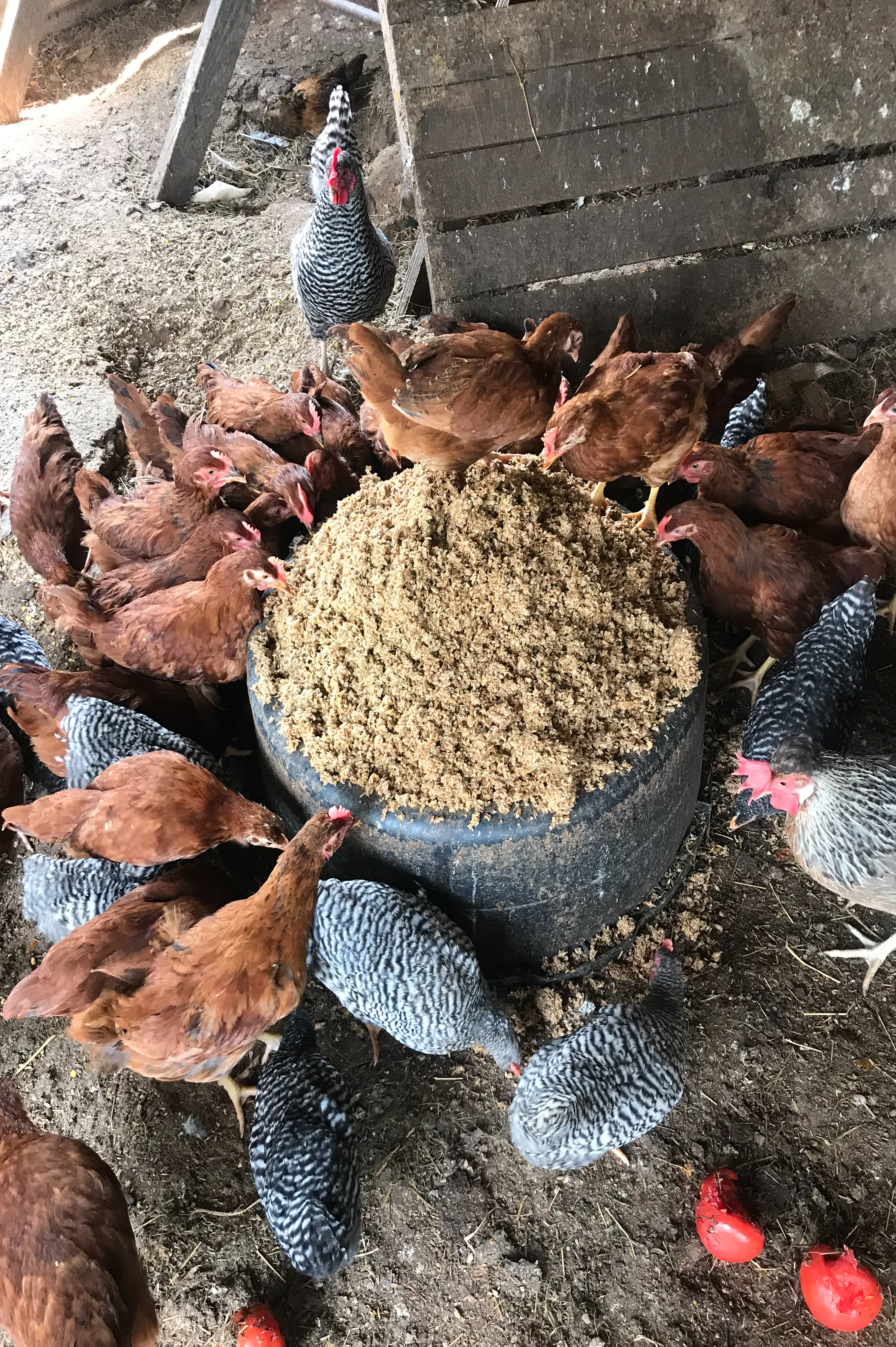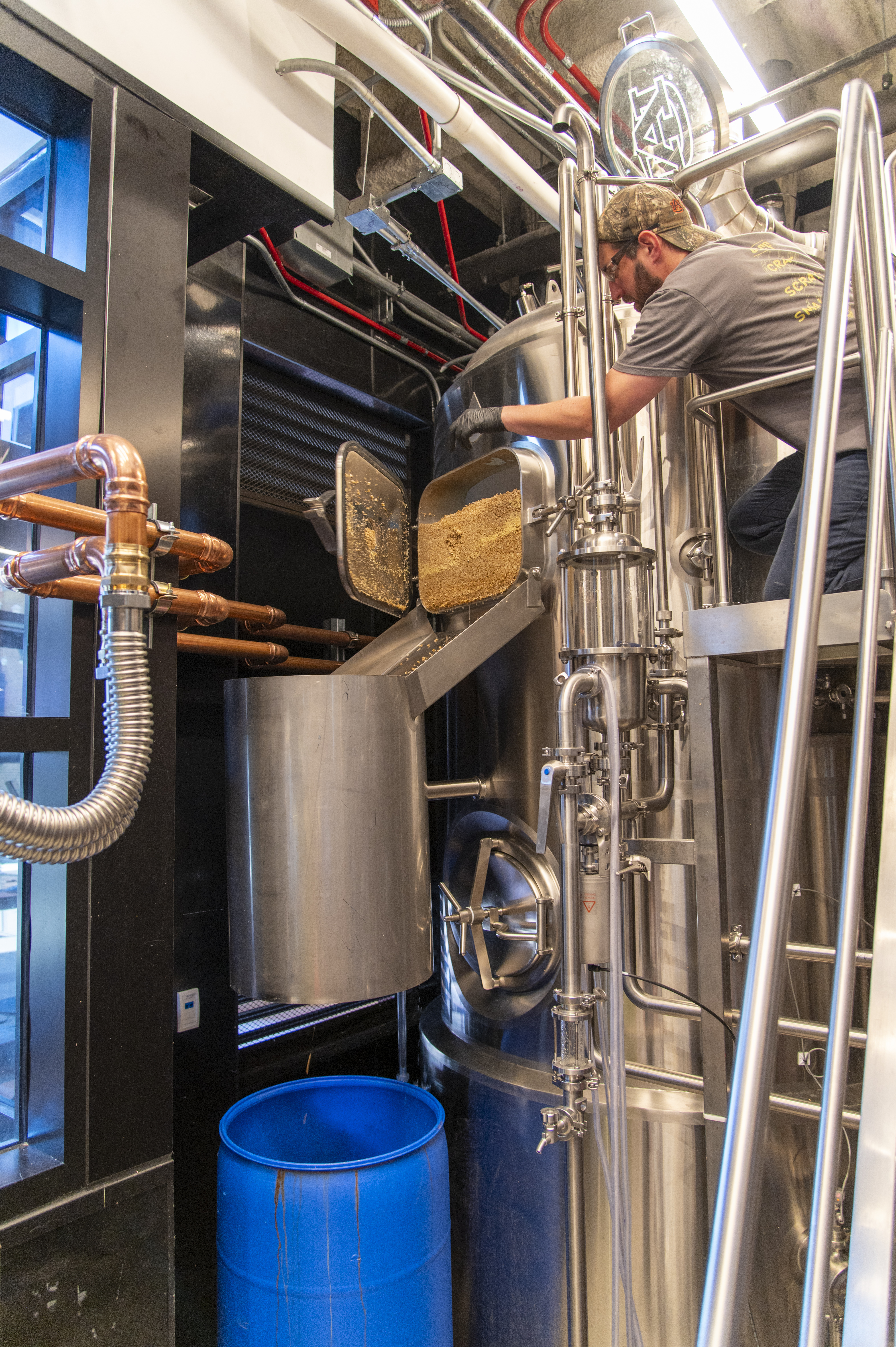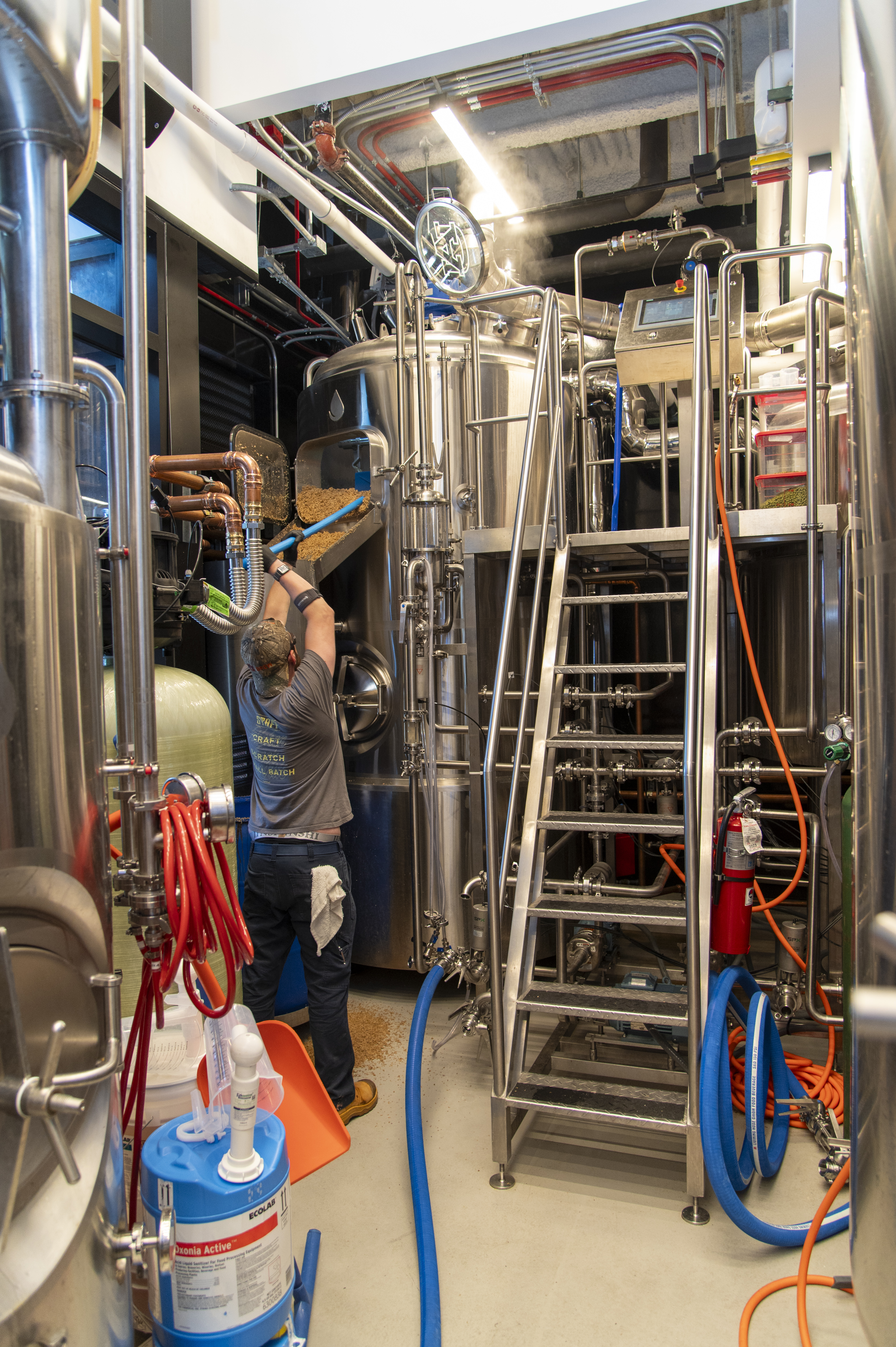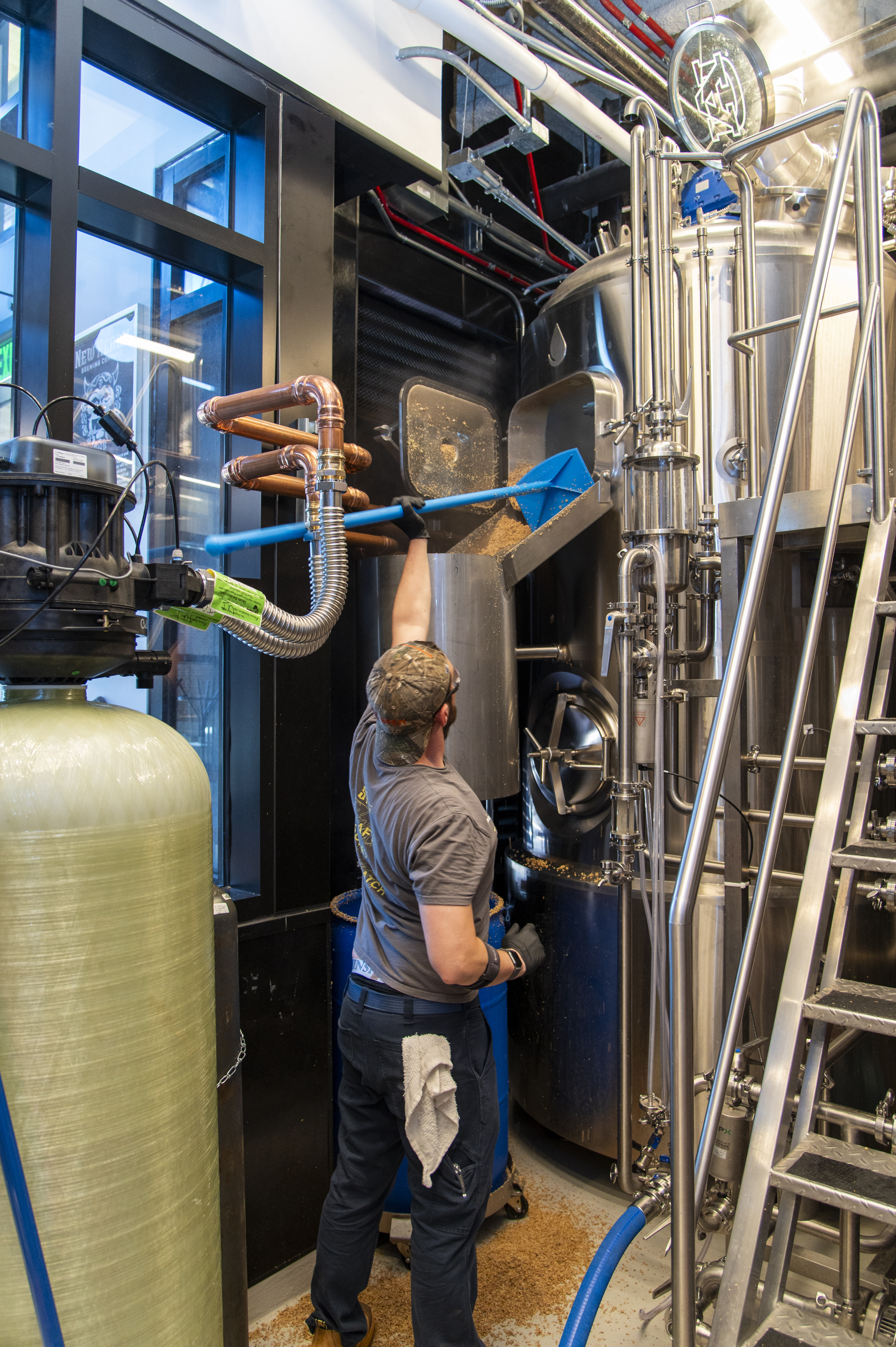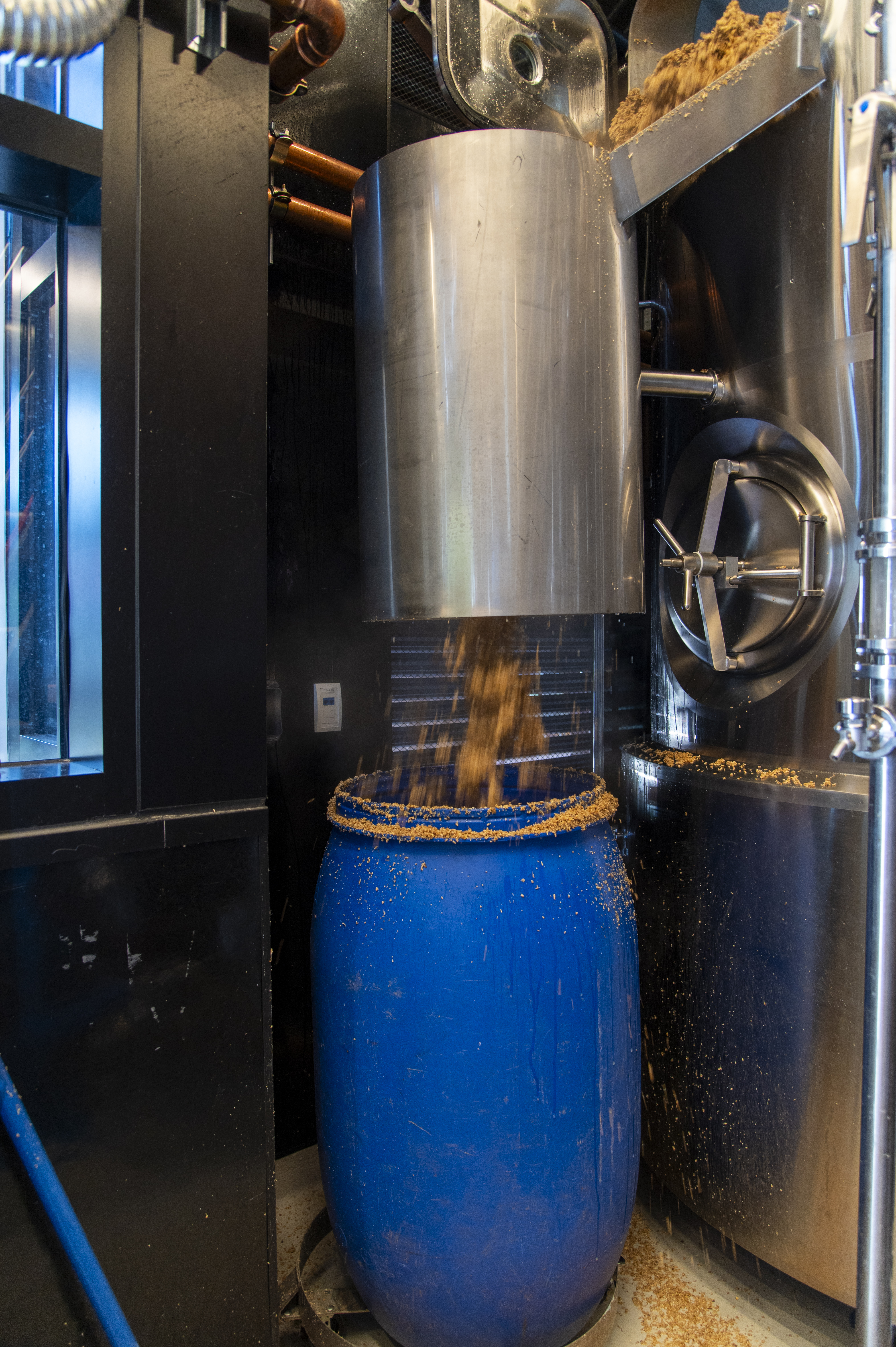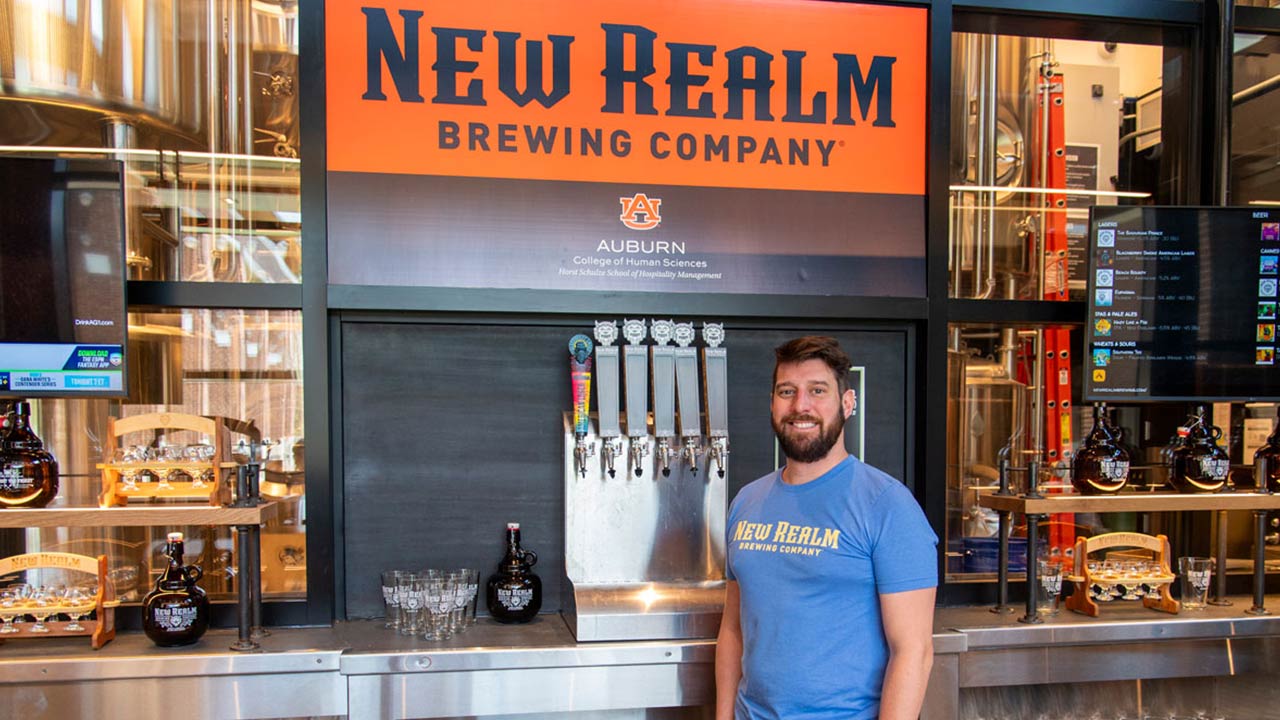content body
Before a tasty pint of your favorite beer is poured inside the impressive New Realm Brewing Company–Auburn taproom, the beer must of course go through the brewing process in the College of Human Sciences Brewing Science and Operations program and with that comes hundreds of pounds of brewer’s spent grain–and plenty of opportunities for sustainability.
Brewer’s spent grain is a common byproduct of the beer brewing process. Although considered a food waste, spent grain can have positive impact on the environment and specifically in New Realm–Auburn’s case, that means using the excess spent grain to feed livestock at one local farm.
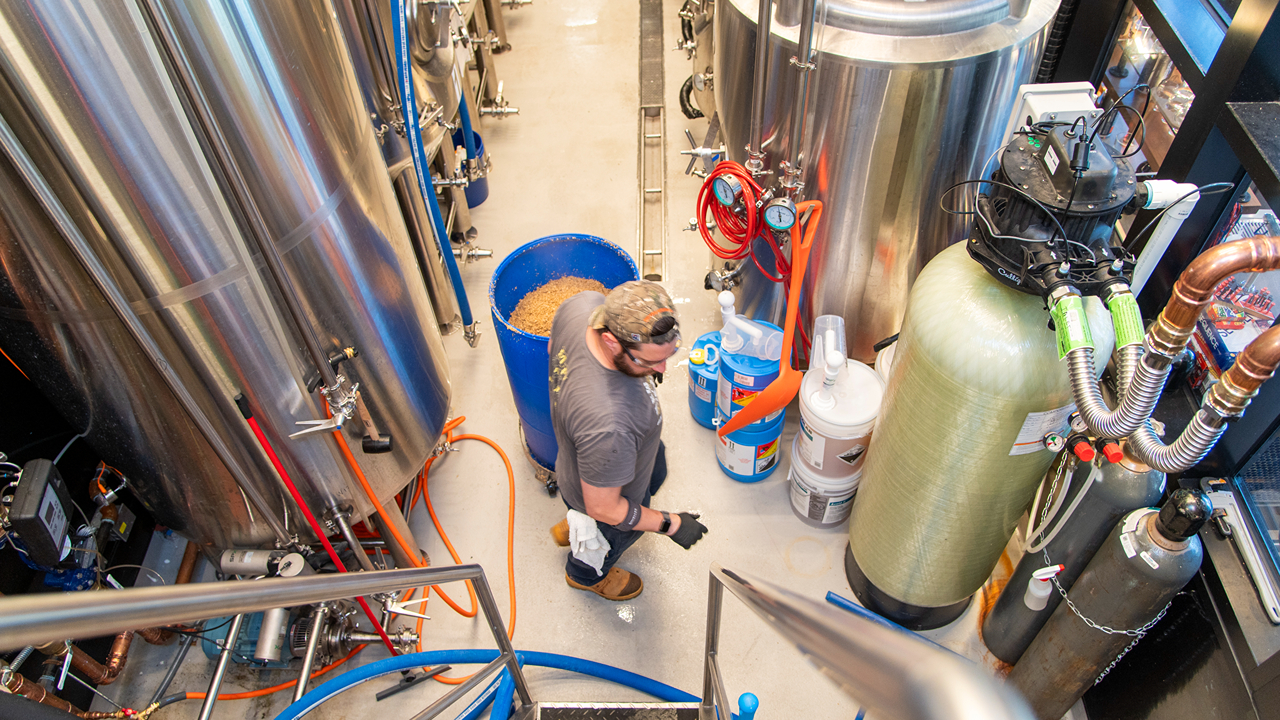
Head Brewer & General Manager of New Realm Brewing–Auburn Drew Kostic collects the spent grain after brewing beer.
Head Brewer & General Manager of New Realm Brewing–Auburn Drew Kostic said he began donating his spent grain ever since his first brew day on Oct. 19, 2023. Depending on the type of beer that is brewed, there can be between 350-650 pounds of spent grain left over each time Kostic brews beer, and that grain waste must end up somewhere.
“A lot of brewers care about the product that we put out and also where it comes from and where it goes because we have to,” Kostic said. “Otherwise, if you don’t know your grain, you don’t know your hops and you don’t know your beer. In addition, beer produces a lot of waste and it’s something that I, along with many other brewers, feel passionate about is trying to reduce the amount of waste that we produce. Whether it be water waste or in this case grain waste. Grain waste is ideal because you can give it away and help farmers and listen, nobody more than Auburn University wants to help our agriculture in this country so for me that was a no brainer.”
The man on the receiving end of that spent grain is 71-year-old life-long farmer Lee Rice, who raises a wide-range of livestock on his farm, appropriately named Rice Farms. Located 45 minutes from Auburn University’s campus and New Realm Brewing–Auburn, Kostic reached out to Rice to ask him if he would be interested in collecting and using the spent grain and since then, Rice has made multiple trips to Auburn to collect thousands of pounds of spent grain for his farm since last fall. Each time Kostic brews beer, the spent grain is loaded into 55-gallon drums and into the back of Rice’s pickup truck and hauled back to his farm where the ideal ratio of protein and feed is created for his livestock.
“My theory is don’t waste anything, and I like to take what seems like nothing and make something out of it.”
Rice’s farm boasts more than 58 cows, 150 chickens, 45 peacocks, geese, ducks, miniature donkeys, catfish and more. When asked why the spent grain was so important for his livestock, Rice said it boils down to one main thing, and that’s to maximize everything you can out of a product and leave behind zero waste.
“My theory is don’t waste anything, and I like to take what seems like nothing and make something out of it,” Rice said. “I take a 50-pound onion bag and fill it up with the spent grain and throw it out in my pond and it’ll take the catfish about two days to eat that much. The cows can eat anything if you feed it to them. I had the spent grain showing at 28% protein and I’m shooting for 14% and then they get the hay and the grass. It’s a good mix, and I can take bulk produce like tomatoes and cabbage and put it all together for a nice ratio. You have to manage it; you can’t feed the animals too much protein at one time with anything, so we rotate things around.”
In addition, Rice has begun taking some of the used coffee grounds from Thrive Coffee Roastery & Café inside the Tony and Libba Rane Culinary Science Center to take to his farm to conduct research using composting.
“Lee has been so great and proactive,” Kostic said. “You hear about cows and chickens getting grain as feed, but Lee has been feeding catfish, peacocks and he’s spreading it around. He’s also doing experimentations not only with our grain but taking some of the coffee grounds from Thrive and using them to promote composting on his farm and other things like that. It’s incredibly impressive to see what he does and how passionate he is about farming practices and continue to reuse and recycle.”
Another unique product that can come out of spent grain is the creation of high protein dog treats to keep your furry friends happy. Spent grain dog treats are hard to keep in stock at New Realm–Auburn, but Kostic said plans are in place to bring them back as often as possible.
“Spent grain dog treats are really simplified,” Kostic said. “The simpler the ingredients, the better for your dog. You see the pet food commercials and our treats are just flour, peanut butter, spent grain and water and that’s essentially the spent grain dog treats right there. The treats are done up in Atlanta and our Virginia Beach locations and anywhere we have a kitchen that’s where they’re made.”
One of the goals of the College of Human Sciences Brewing Science and Operations program is to showcase best practices in all aspects of the brewing process and by recycling the spent grain, Kostic said this shows students in the brewing program that it is vitally important to utilize all your resources and become embedded in your community.
“I think it’s twofold. It’s a reminder that we’re all in the same boat meaning the planet,” Kostic said. “Meaning we’re all in this together and we need to utilize our resources to share and make sure that we’re completing full cycle going from grain to glass and hopefully back again. That’s essentially what this is, is one more trip around it can become a cow that’s used for meat or milk, and we are helping to feed the next step on the supply chain. Additionally, I find it rather important because craft brewing specifically is a localized field. It’s something where you ingratiate into your community. I like to say, ‘We’re not just Auburn University’s brewery, we’re Auburn, Alabama’s brewery.’ You want to be able to develop those relationships with your people because not only are they patrons, they’re also your neighbors so what this does is it allows brewers to reach out and gives them a reason to touch base with community members and continue to build that relationship.”
For more information on the College of Human Sciences Brewing Science and Operations program, click below.
AU BREW


